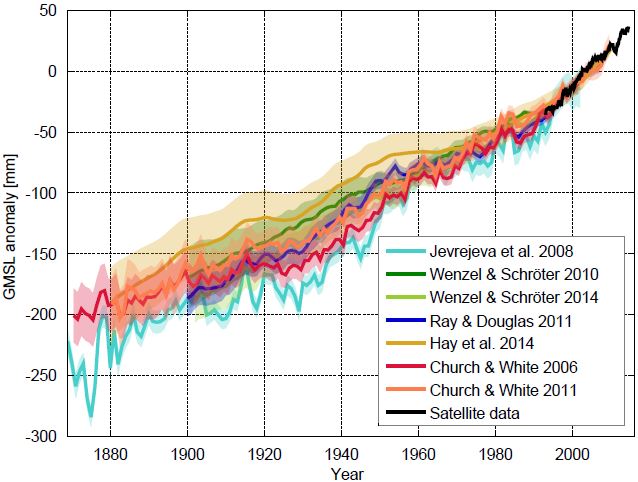Last Friday, NASA GISS and NOAA NCDC had a press conference and jointly announced the end-of-year analysis for the 2014 global surface temperature anomaly which, in both analyses, came out top. As you may have noticed, this got much more press attention than their joint announcement in 2013 (which wasn’t a record year).
In press briefings and interviews I contributed to, I mostly focused on two issues – that 2014 was indeed the warmest year in those records (though by a small amount), and the continuing long-term trends in temperature which, since they are predominantly driven by increases in greenhouse gases, are going to continue and hence produce (on a fairly regular basis) continuing record years. Response to these points has been mainly straightforward, which is good (if sometimes a little surprising), but there have been some interesting issues raised as well…
[Read more…] about Thoughts on 2014 and ongoing temperature trends
